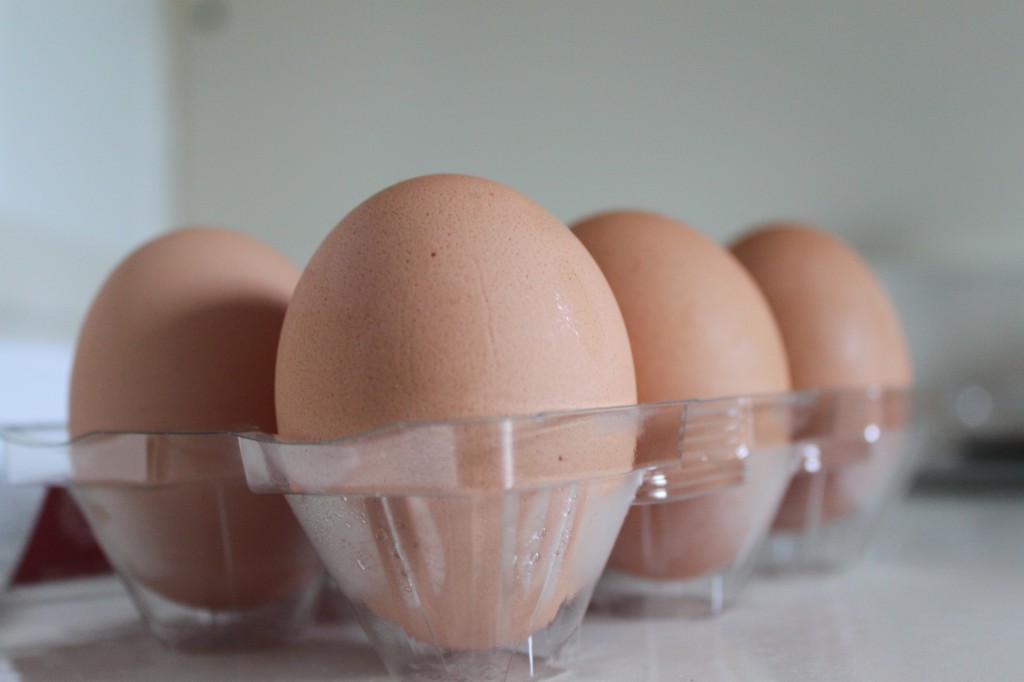Meet Gabi Moskowitz, author of the Brokeass Gourmet blog and cookbook. Her goal: to teach people to make delicious food on a tight budget. All her recipes can be made for under $20, assuming you have a few basic ingredients like flour, eggs and olive oil on hand. In an interview with Spoon, she shared her story and tips on everything from buying organic to cooking for one.

Photo courtesy of Gabi Moskowitz.
Spoon: So tell us a little bit about yourself. How did you come to be interested in food and cooking?
GM: When I was a kid, I always loved to watch my mom cook. When I was little, about 6 years old, she went to graduate school and it was night school. I grew up in Sonoma County and she was driving down to San Francisco two times a week. My dad would attempt to make dinner; it usually ended up being pizza or frozen waffles, and eventually I decided that was not going to work for me anymore. I started out helping him, I’d make like a vegetable side dish, and eventually I started making more and more and it became like my thing. I would come home, do my homework and then throw dinner together for my dad and my brother and me. […] Once I got to be 9, 10, 11, I was making dinner. I’ve always loved it and it’s always come really naturally to me. Flavors have always been something that I’ve basically understood and then with practice, it’s gotten better.
S: So did you end up going to culinary school?
GM: No, I didn’t even think I was going to end up in the culinary realm. I cooked for pleasure and when I was in college that’s when I started to figure out that I was good at it. As I got older I started to realize that nobody else really knew how to do this stuff. It’s a very uncommon skill for a 19 year old to have. But, I became a kindergarten teacher and I taught for three years, and one of the things about being a teacher is that you enter the workforce on a very low salary. I was not going out to dinner every night; I was buying groceries and stocking my pantry and cooking from scratch because it was cheaper.
S: How did you go from teaching to food writing?
GM: When I came to San Francisco, I saw that I had these peers who were working in the tech industry. Then in […] the fall of 2008 when the economy came crashing down and a lot of them lost their jobs, it was like this bizarre thing where nobody knew how to live on a low budget because they had all started making a lot of money […] I was watching these brilliant engineers dropping like flies from their jobs, and they couldn’t manage to eat anything but burritos and pizza. I was like this is kind of silly, so I took it upon myself to put together my blog, Brokeass Gourmet, just kind of as a source of information. I thought it would be a fun project. I’d been doing random food blogging for a while, and I thought this would be a nice progression. I managed to come up with something that stuck and really resonates with people. I wanted to come up with something that resonated with Joe Normal, Joe Normal who has to eat and respects food and loves food and doesn’t necessarily want to have to pay restaurant prices. I just wanted to make it accessible.
S: For a college student trying to feed themselves cheaply, what would you recommend stocking the kitchen with?
GM: You should go get an immersion blender. That’s like a $35 appliance; it’s a great tool, especially if you get the kind of tricked-out one from Cuisinart. It’s like a stick blender, so you can put it in a pot and puree whatever you’re making so you don’t have to put it into a food processor. There’s a whisk attachment, you can make whipped cream. You can beat egg whites if you want to make meringue. For a fraction of the cost of a variety of different appliances, it’s all in one. I use mine almost every day.
S: And what about in terms of basic ingredients?
GM: On the blog, there’s something called the $50 pantry. The whole backbone of the blog is that you base your cooking around staple ingredients, to which you add fresh items. That’s how you keep it inexpensive, because you make sure to always have flour, olive oil, salt, pepper, which is all cheap stuff. You don’t go out and buy $200 worth of fresh produce because you’re in college and there’s no way you’re going to eat $200 worth of fresh produce before it goes bad. The idea is that you buy a few fresh ingredients as you need them.
[Buy an] olive oil that tastes good. It’s easy to just buy the cheap-o whatever olive oil, but for a dollar or two more you can get a much more versatile product because when you like the way it tastes it’s a really awesome way to elevate your food. I love to finish soups with a drizzle of extra virgin olive oil. It adds a richness and a body that just makes it taste more expensive, but I wouldn’t do that with olive oil that’s basically the equivalent of canola oil. It should just always be something that tastes good and always extra virgin. Do not buy regular olive oil because it’s not fresh.
The other thing that’s really good to have on hand is half and half, especially if you don’t drink milk. If you have a recipe that calls for milk, you can actually make it out of half and half. They’re small containers so you’ll use them up before they go bad, and it’s a really nice way to add a bit of luxuriousness to something. You stir a little bit into a creamy soup, or into a curry or mac and cheese (even if you’re making mac and cheese from a box, which you shouldn’t do). It’ll give it much more body, much more flavor.

Photo by Christina Cala.
Eggs are the number one thing that are going keep you from eating crap for dinner. Even when you come home from a really long hard day and you’ve got a ton of homework, you can still make a healthy dinner, whether you poach a couple of eggs and put them over some greens, or just make scrambled eggs or make an omelet.
Click here to read part two of our interview.

